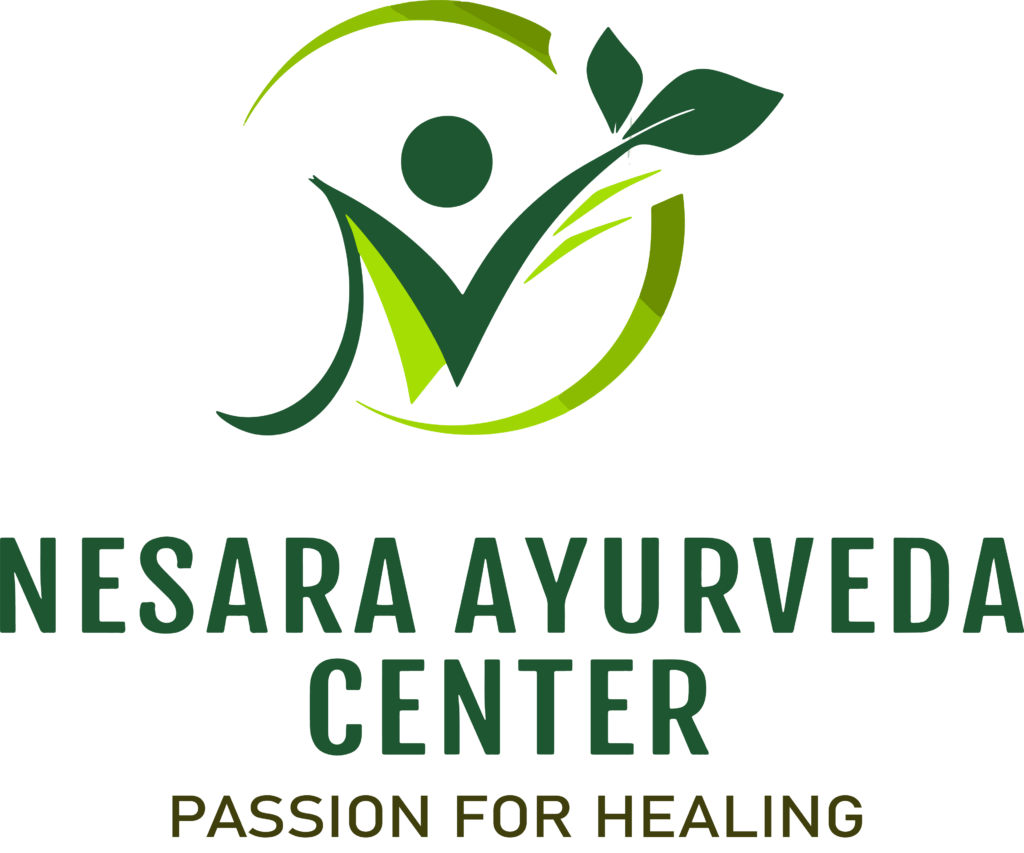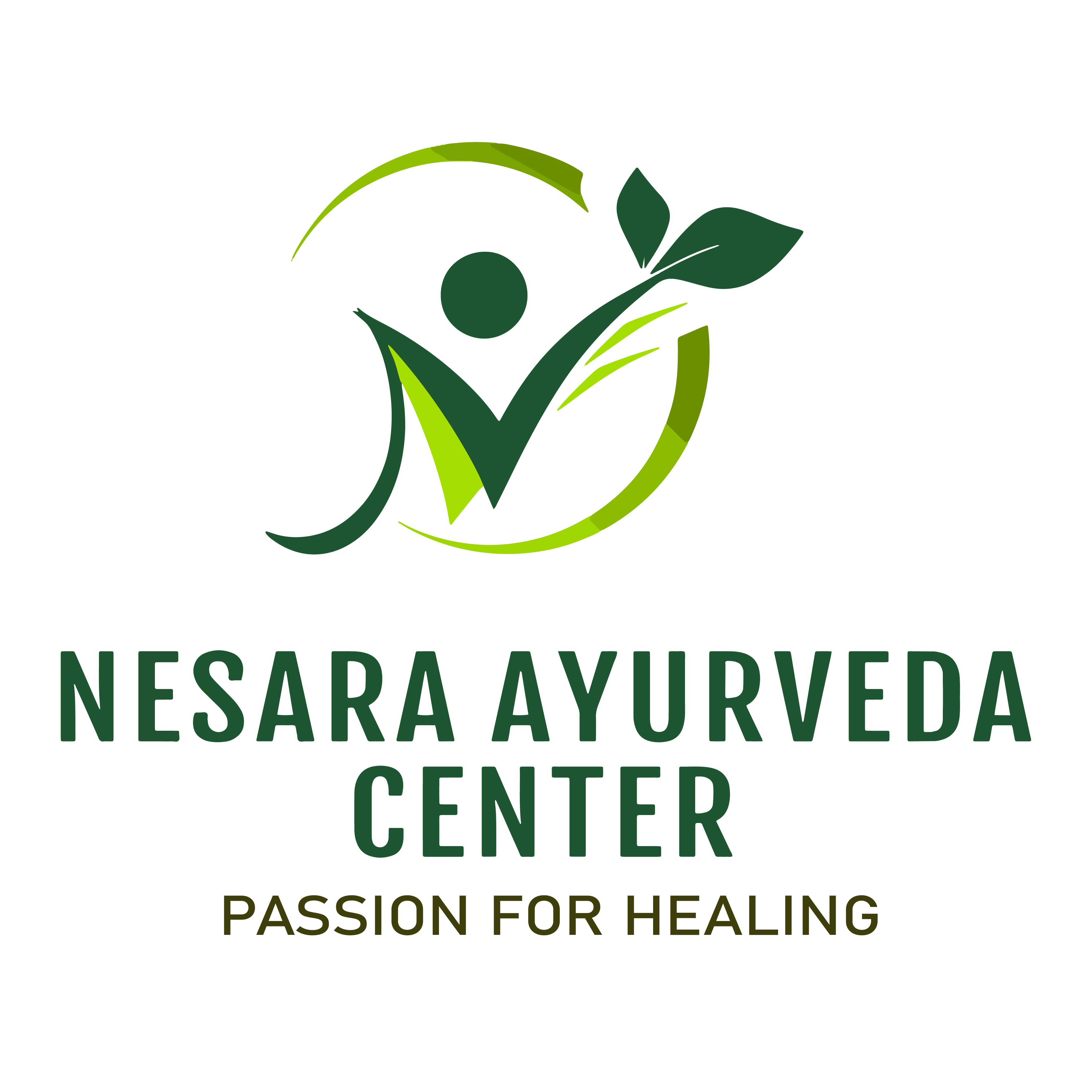Skin Treatment
Urticaria
Urticarial rashes are commonly known as hives. They are most commonly caused due to an allergic reaction. In Ayurveda, a condition called Sheetapitta is explained, which bears similar symptoms of Urticaria. There is no specific and satisfactory treatment in contemporary science for the condition of urticaria. But, it can be effectively managed through Ayurveda system of medicine. Even though it is not a life threatening problem, it seriously affects the quality of life. Though not all, few of the individuals suffer from hives for months or years together and the incidences of relapse is also frequently found. Repeated intake of anti histamines or cortico-steroids reduces the immunity of the body and thus Ayurveda has a definitive edge in providing a comprehensive solution to this health problem.
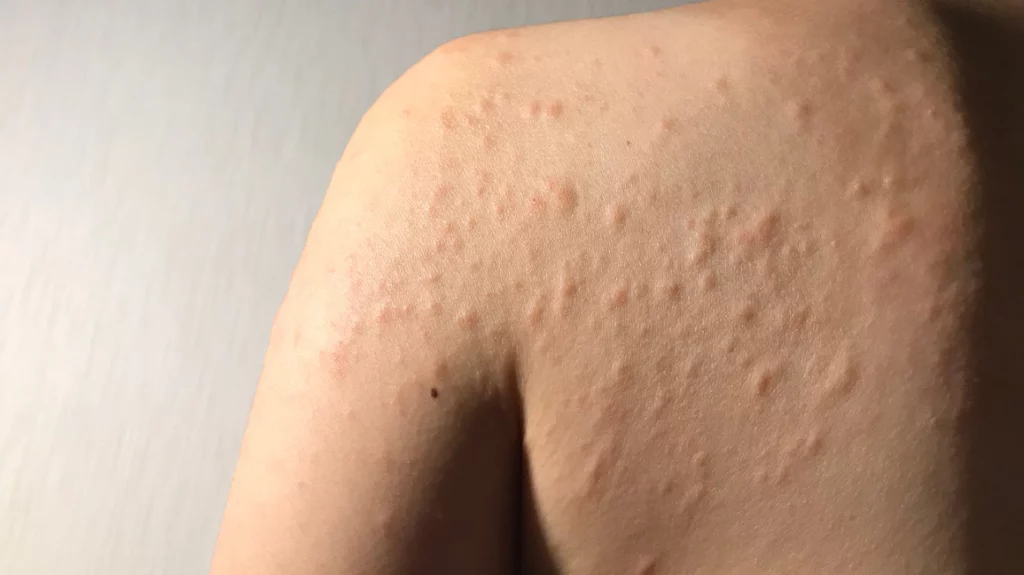
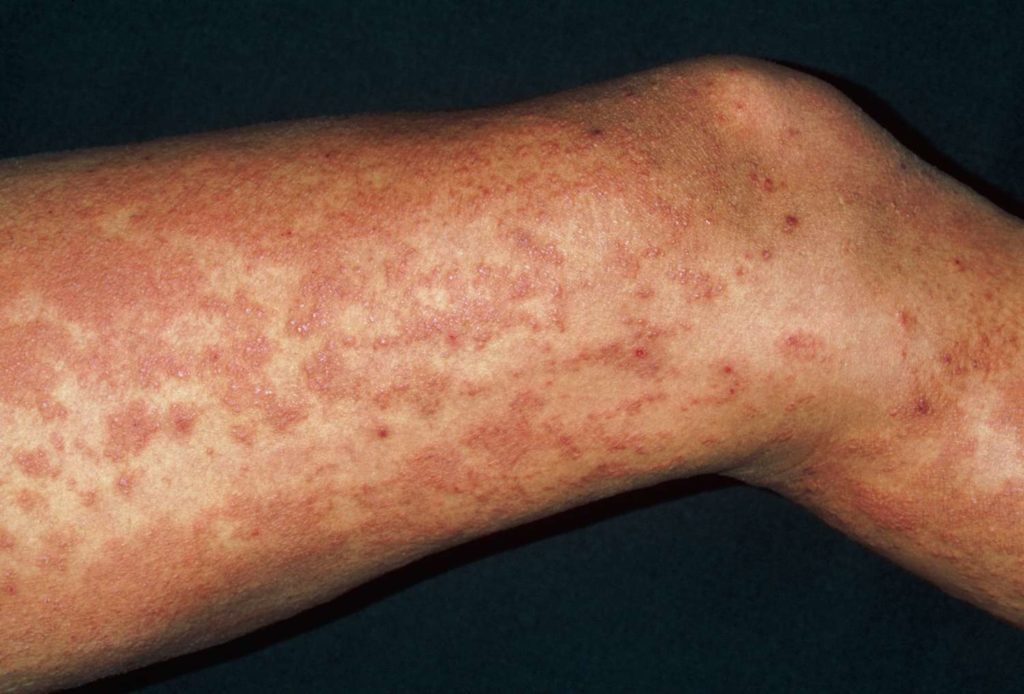
Key Ayurvedic Concepts for Urticaria:
- Dietary Modification : Ayurveda emphasizes the importance of a Pitta-pacifying diet to reduce inflammation and heat in the body. This includes consuming cooling foods like cucumber, mint, and coconut water, while avoiding spicy, sour, and fried foods that can exacerbate Pitta.
- Herbal Remedies : Ayurvedic herbs such as Neem, Turmeric, Amla, and Aloe Vera are often used to detoxify the body, reduce inflammation, and soothe skin irritation. These herbs can be used both topically and internally.
- Lifestyle Adjustments : Managing stress is essential, as stress can aggravate Pitta dosha. Practices like yoga, meditation, and deep breathing exercises can help keep stress in check.
- Detoxification (Panchakarma): Ayurvedic therapies like Panchakarma, which includes treatments like Virechana (therapeutic purgation), can help eliminate excess Pitta and toxins from the body.
- Prakriti Analysis: Ayurvedic practitioners often consider an individual's Prakriti (unique constitution) when developing a treatment plan. Understanding one's Prakriti helps tailor therapies to the individual's specific needs.
- External Applications: Topical applications of cooling substances like sandalwood paste, coconut oil, or aloe vera gel can provide relief from itching and redness.
- Avoid Triggers: Identifying and avoiding triggers that exacerbate urticaria, such as specific allergens, can help prevent flare-ups.
Psoriasis
In Ayurveda, psoriasis is referred to as "Kushtha." It is considered a chronic skin disorder resulting from an imbalance in the body's doshas, particularly Vata and Kapha. Ayurvedic treatments for psoriasis focus on addressing the root causes, purifying the body, and providing relief from its symptoms.
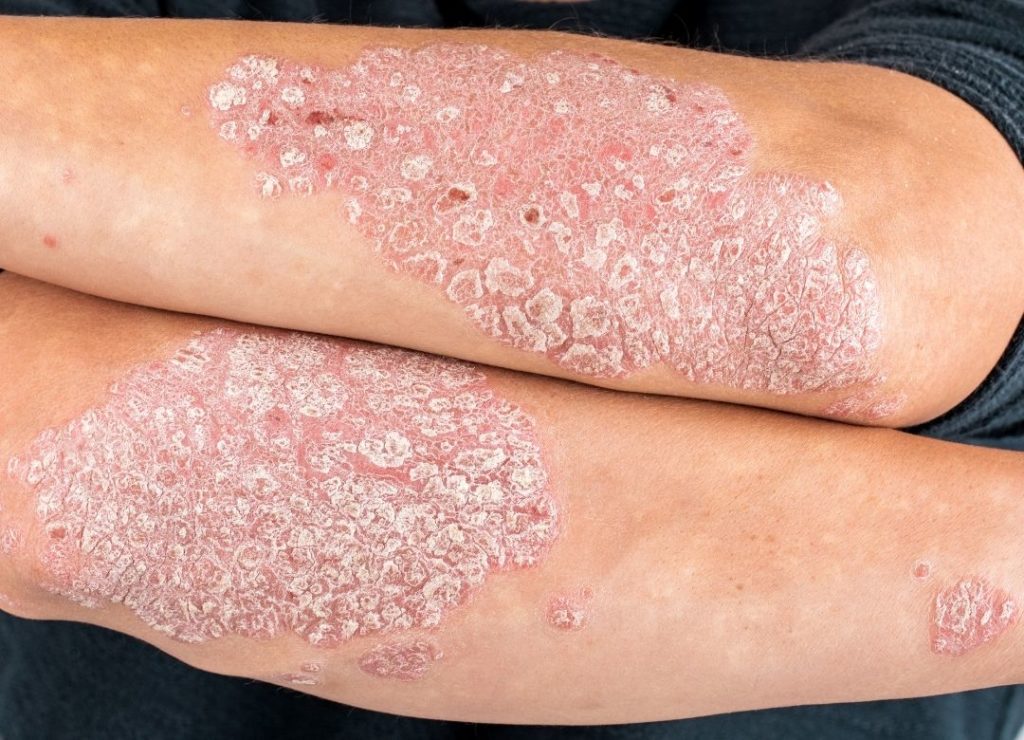
It's crucial to consult with a qualified Ayurvedic practitioner who can assess your condition and provide a personalized treatment plan for psoriasis. Ayurveda often complements conventional medical care for psoriasis, and it is essential to work with both healthcare systems for the best results, especially in severe cases.
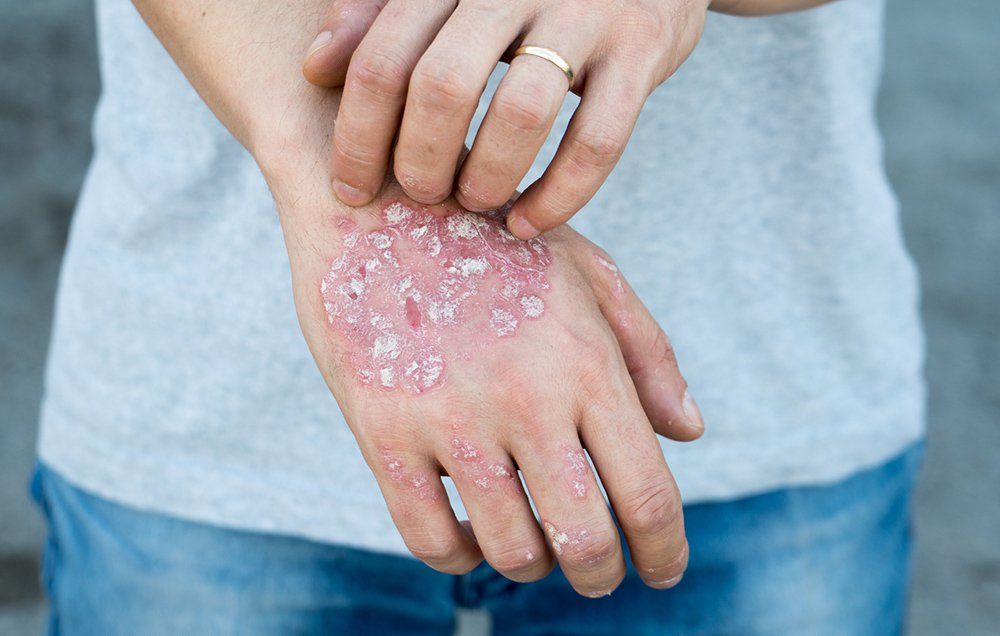
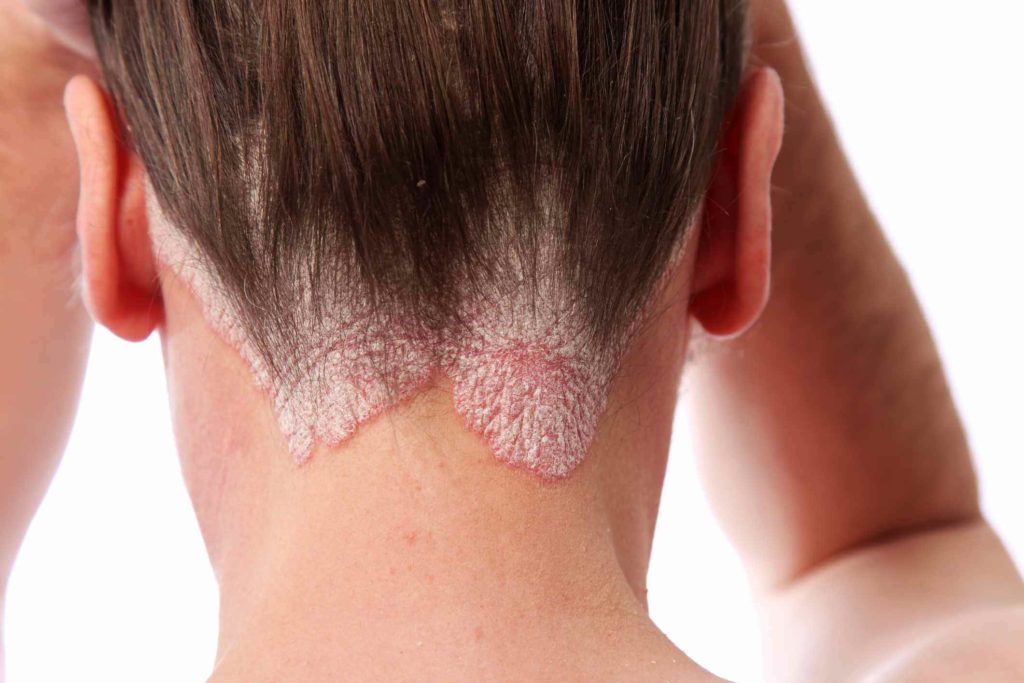
Key Ayurvedic Concepts for Psoriasis:
- Balancing the Doshas: Ayurvedic practitioners aim to balance the aggravated Vata and Kapha doshas, as their imbalance is believed to contribute to psoriasis. This involves dietary and lifestyle changes that pacify these doshas.
- Dietary Modification : A psoriasis-friendly diet emphasizes foods that are easy to digest and that have anti-inflammatory properties. It often includes bitter vegetables, ghee (clarified butter), and herbal teas. Foods that can trigger inflammation, such as spicy and sour items, are usually restricted.
- Herbal Remedies : Ayurvedic herbs like Neem, Turmeric, Aloe Vera, and Manjistha are commonly used to detoxify the body, reduce skin inflammation, and support overall skin health. These herbs may be consumed internally or applied topically.
- Panchakarma Therapy : Panchakarma, a purification and detoxification therapy, is often recommended for individuals with psoriasis. This may involve treatments like Virechana (therapeutic purgation) and Abhyanga (oil massages) to remove toxins and improve skin health.
- Stress Management : Stress is considered a significant trigger for psoriasis in Ayurveda. Practices like yoga, meditation, and relaxation techniques are encouraged to manage stress and maintain emotional balance.
- External Treatments : External applications of herbal pastes, medicated oils, and baths are used to soothe and nourish the skin, helping to alleviate itching and redness.
- Lifestyle Adjustments : Avoiding factors that worsen psoriasis, such as excessive sun exposure, alcohol, and smoking, is important. Staying in a stress-free environment and maintaining regular sleep patterns are also recommended.
